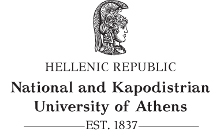School of Economics and Political Sciences
Department of Political Science and Public Administration
GEORGIOS STAVROPOULOS
Doctoral Dissertation in progress
«Bridging the Gap between Administration and Vulnerable Groups: The Intermediary Role of the Third Sector in the Provision of Welfare Services»
Commencement date: May 28, 2024
Abstract
In recent years there has been a participatory turn in the provision of public services, which is now understood as an ecosystem where different actors work together to co-create public value which depends on the quality of interaction. While the concept of co-production implies the active participation of users in the provision of public services, welfare services are usually addressed to vulnerable population groups who are not able to communicate their needs directly to the Administration as a result of cognitive, cultural, linguistic, or other constraints. At the same time, these groups are affected in their bureaucratic encounters by disproportionate administrative burdens that hinder their access to public services.
Therefore, a gap is created between the provider (public administration) and the users (vulnerable groups), which is expected to be bridged by third sector actors, redefining the state-citizen relationship. The proposed thesis considers that this could be done in two ways: First, through the contribution of voluntary organisations in mitigating administrative burdens to improve the access of marginalised groups to public welfare services, and the subsequent promotion of social equity; and second, through transmitting their requests to the Administration (given their limited deliberative capacity), in the light of community co-production, to develop new services that better respond to their multifaceted needs.
That said, the aim of this thesis is to contribute to a better understanding of the intermediary role of third sector actors, thus filling the gap in the existing literature on how exactly they interact with vulnerable groups on the one hand and with civil servants on the other in the context of collaborative governance. At the same time, it aims to identify the institutional factors that may influence these interactions, examining the potential bureaucratisation of the participatory turn of the Administration and the institutionalisation of the intermediary role of volunteers.
The working hypotheses will be tested on the basis of an extensive qualitative research of selected NGOs and the way they mediate between the Municipality of Athens and homeless people in order to highlight issues related to their rights and their joint settlement.
